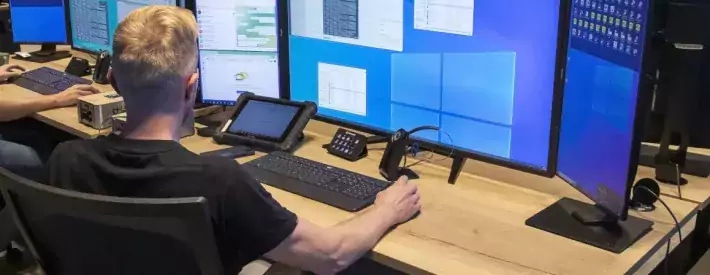How remote diagnostics can help tackle the ADAS skills shortage

The IMI research paper Meeting The Demand For Skilled Vehicle Technicians In The Age Of ADAS made national news headlines earlier this year, predicting that the sector will require 106,000 ADAS-qualified Technicians by 2030.
It forecast that 44% of the UK car parc will have level 2 autonomy by 2030, with features such as Adaptive Cruise Control and Lane Keeping Assistance becoming standard. It also estimated that there were only around 3,000 UK-based ADAS-qualified technicians at the end of 2022.
Quite a challenge then, and there’s broad agreement that remote diagnostics will be part of the solution. With a Europe-wide network including Technicians from vehicle manufacturers, main dealers and big aftermarket players, Jifeline offers a compelling proposition – the ability to outsource coding and programming jobs to any one of their 120+ partners.
Formed in the Netherlands in 2012, Jifeline won the Automechanika Innovation Award in 2018. European Business Development Director, Richard Taylor, previously Head of Collision Repair at LKQ, explains why the technology could be key to filling the skills gap and meeting customer needs.
“Right now, the biggest holdup is generally in parts supply rather than ADAS skills, but 2030 is only seven years away and the training issue will become ever more pressing.
“By connecting our J-ReX tool via the OBD, you open the door to our fast-growing technical ecosystem. We have partners in 25+ countries with over 15,000 customers and over 350 Technicians between them.
“Whether it’s a common job like key coding, a windscreen or bumper sensor calibration, or something more complicated, you can outsource it to a specialist anywhere in Europe. Within our dashboard, you can refine your choice based on requirements ranging from knowledge to success rate to price.
“If, for example, a bodyshop in Inverness has an amazing BMW expert, but they only generally do a few BMW jobs a day, that’s not really sweating their asset. By plugging into Jifeline, that technician could be receiving BMW jobs all day long, from anywhere, Brighton to Belgrade, providing a brilliant service and making the most of their technical knowledge. The bodyshop upsells their employee’s time and the technician gains ever more experience.
“We liken our model to an old-fashioned telephone exchange, with the ability to plug into hundreds of different partners, finding the best people for that particular job. Individual businesses could be limited by their own staffing, only able to handle X number of jobs a day. The easiest way to increase capacity is to utilise a technician from a partner. Collaboration really is the key to solving this skills issue.
“Our ecosystem approach is unique. It is industry-wide, including partners from the VM side and independent repairers. You can train someone to do an ADAS calibration with an OE or aftermarket tool, but what if it doesn’t work? With our solution you can flip that onto a marque specialist, all within your own branding.
“From a UK-perspective, initiatives such as IMI TechSafe make our partner Technicians highly attractive, suited to taking on higher value insurance work, as well as more run-of the-mill jobs. More broadly, remote services can attract new entrants into the industry, particularly youngsters keen on desk work rather than the getting your hands dirty.
“Remote diagnosis has so many advantages. It can save repairers having to physically take cars to a local dealer, or getting a mobile specialist in. We’re also working with a number of large corporate organisations to build models specifically for their businesses.
“We see ADAS training and remote support going hand-in-hand. Yes, invest in people, but also in better ways to utilise those skills. To that end, we’re building our own training proposition and are in discussion with a number of training providers about adding a remote diagnosis module to their ADAS courses.”
Time to prepare for an ADAS future, check out the courses and qualifications the IMI offers




